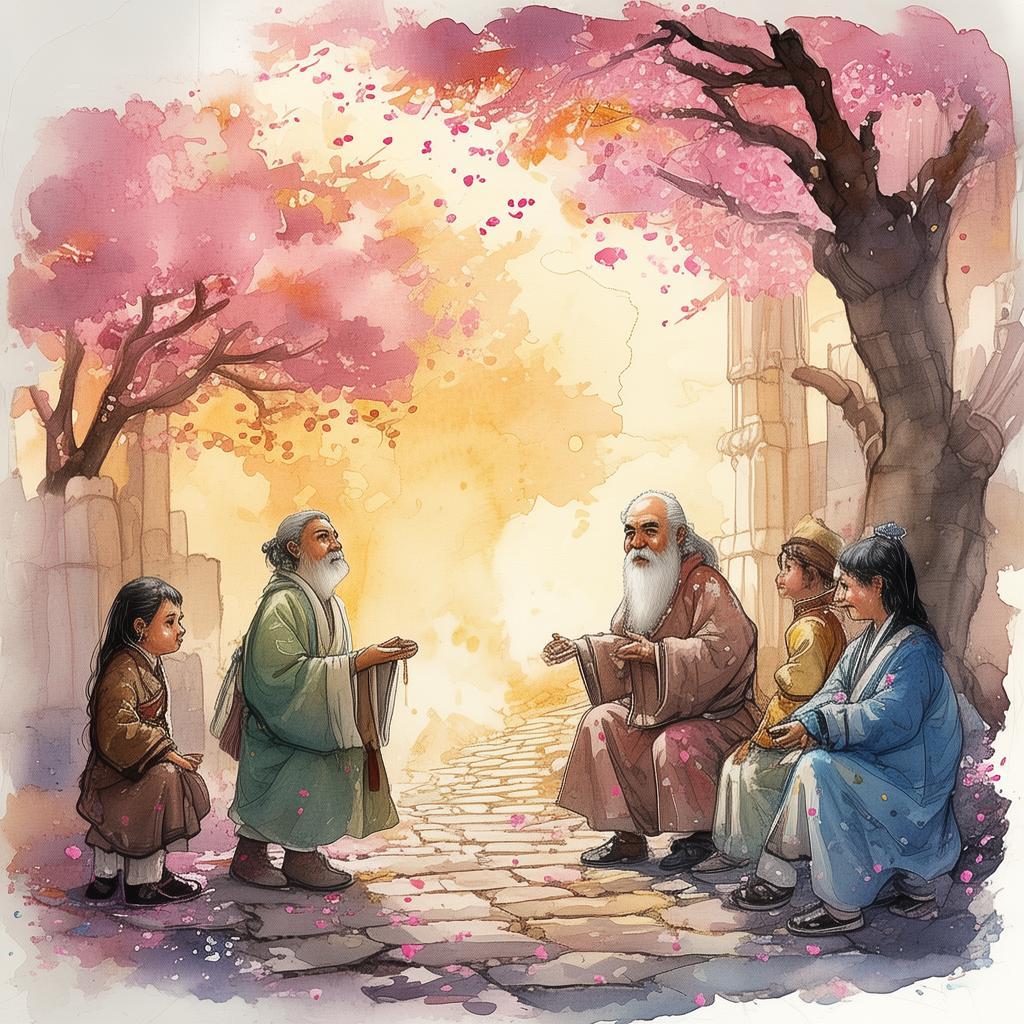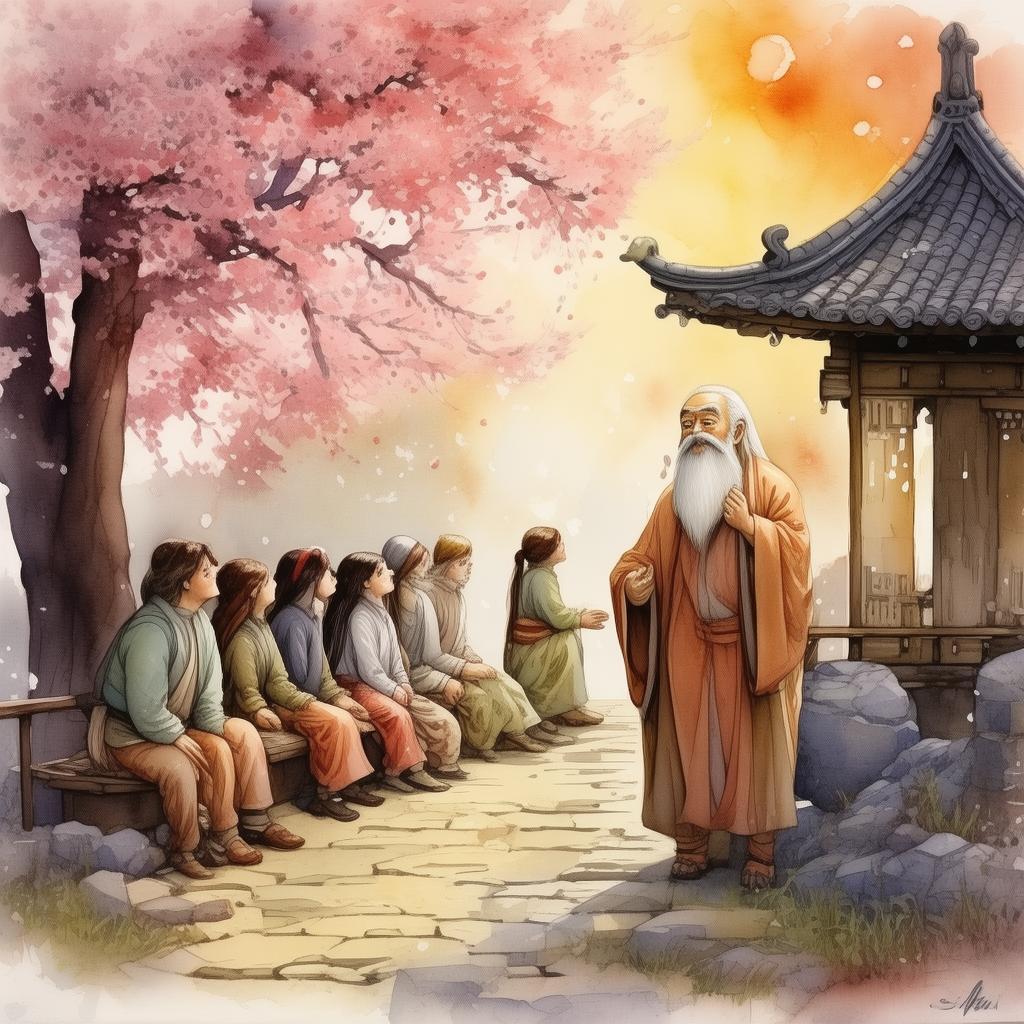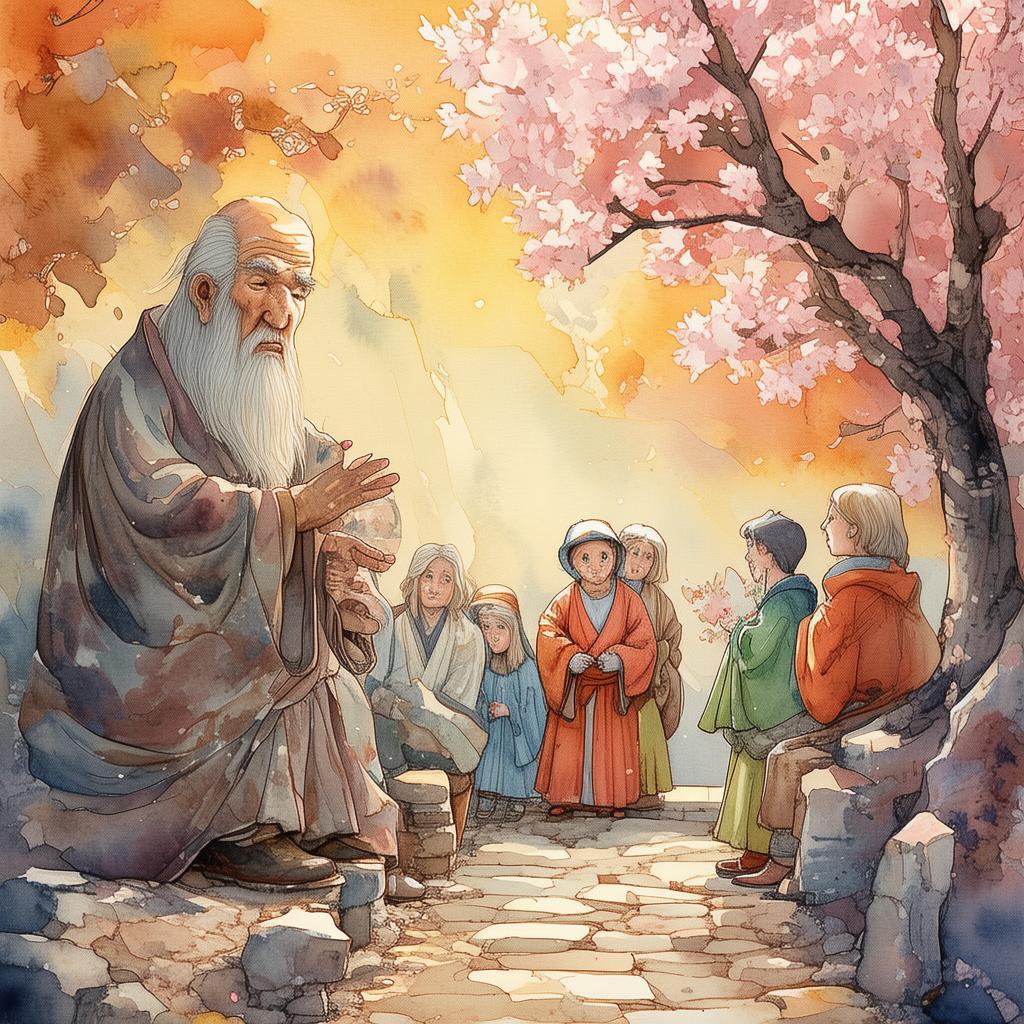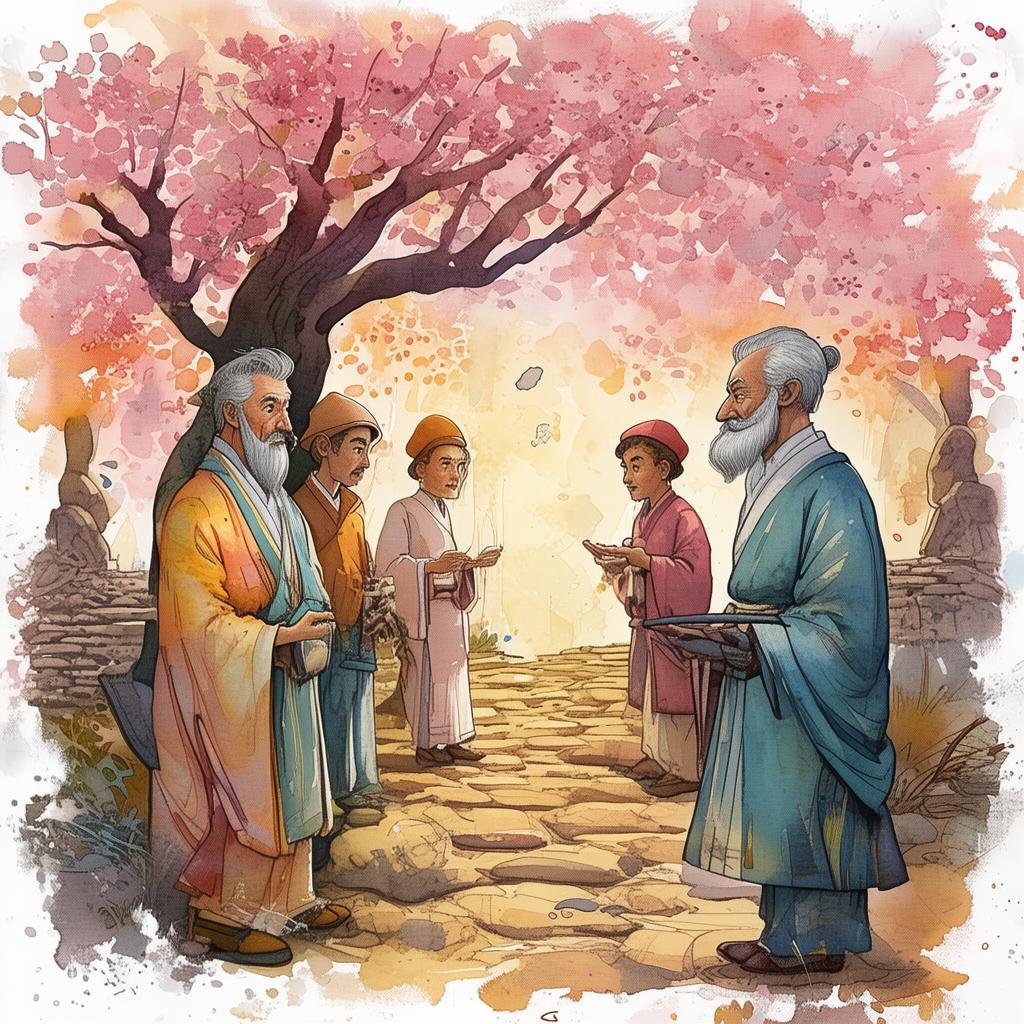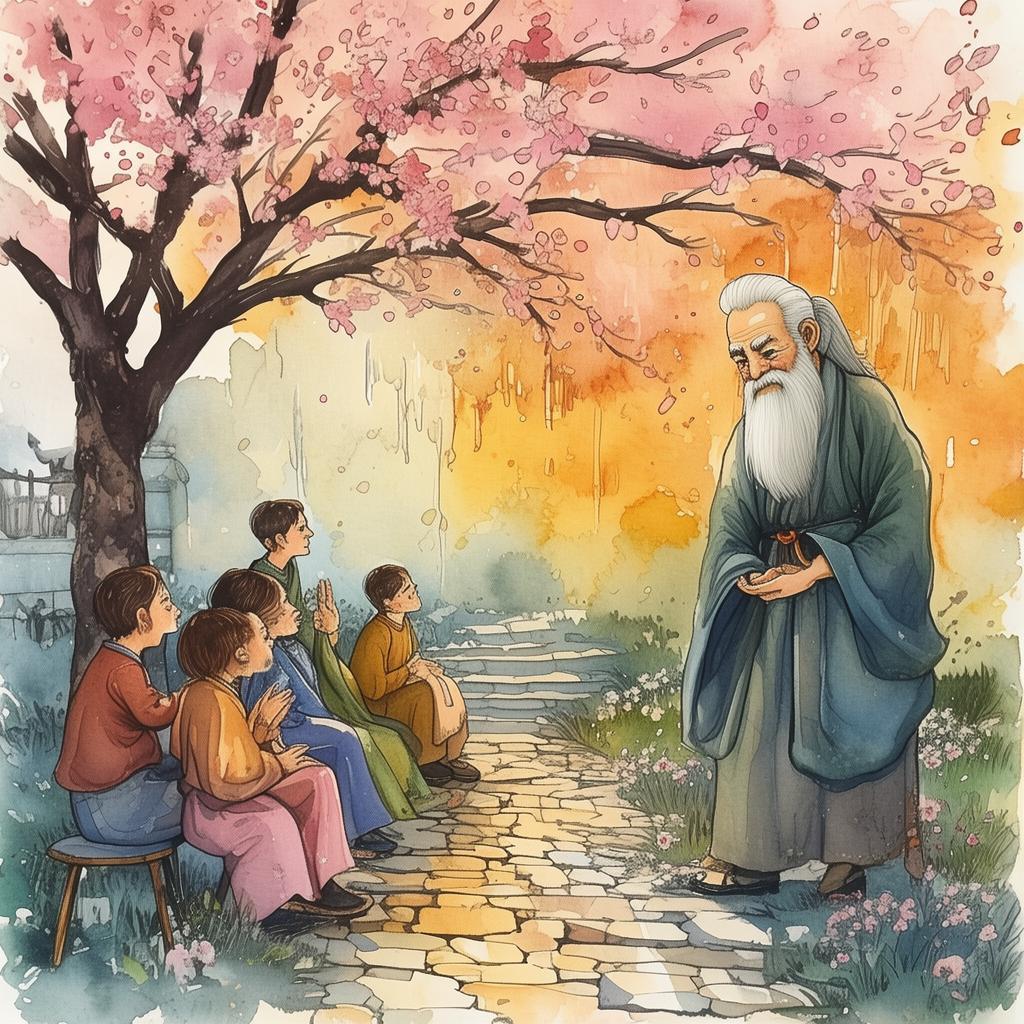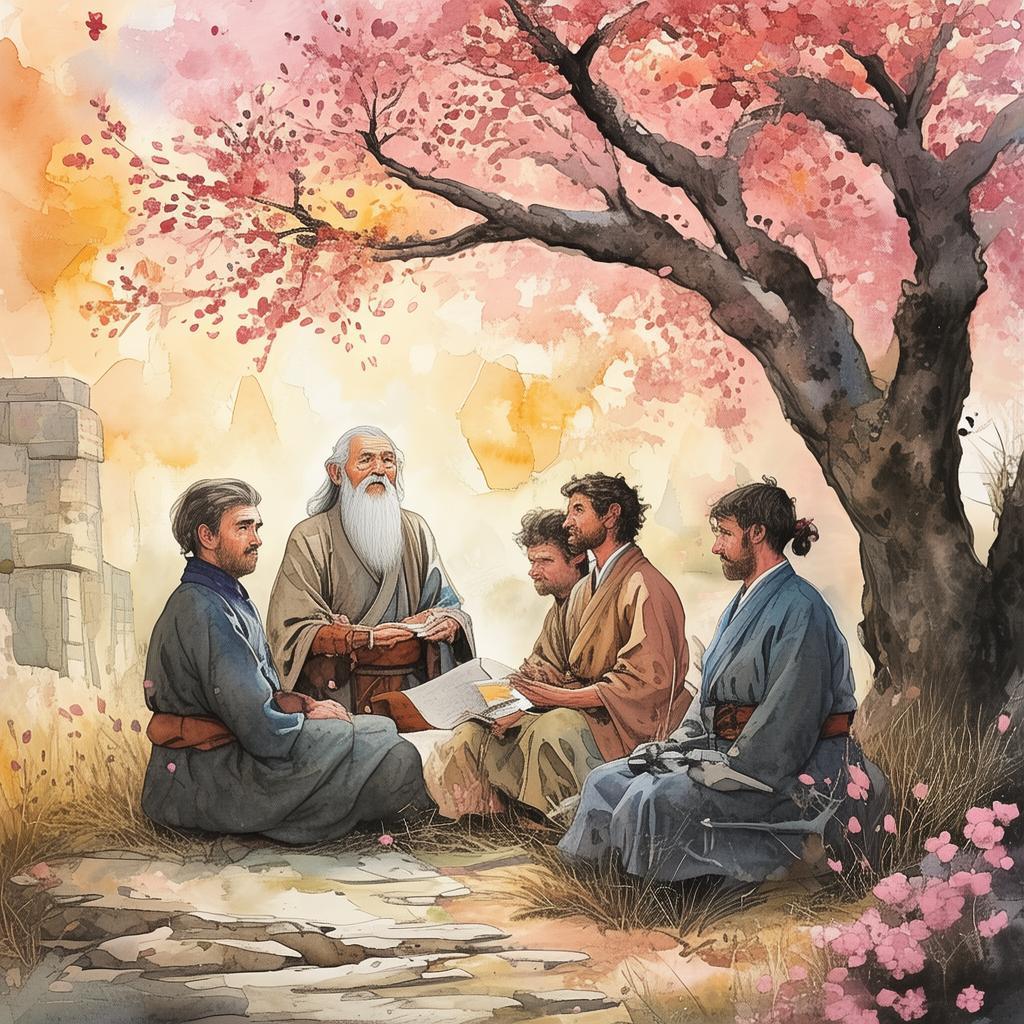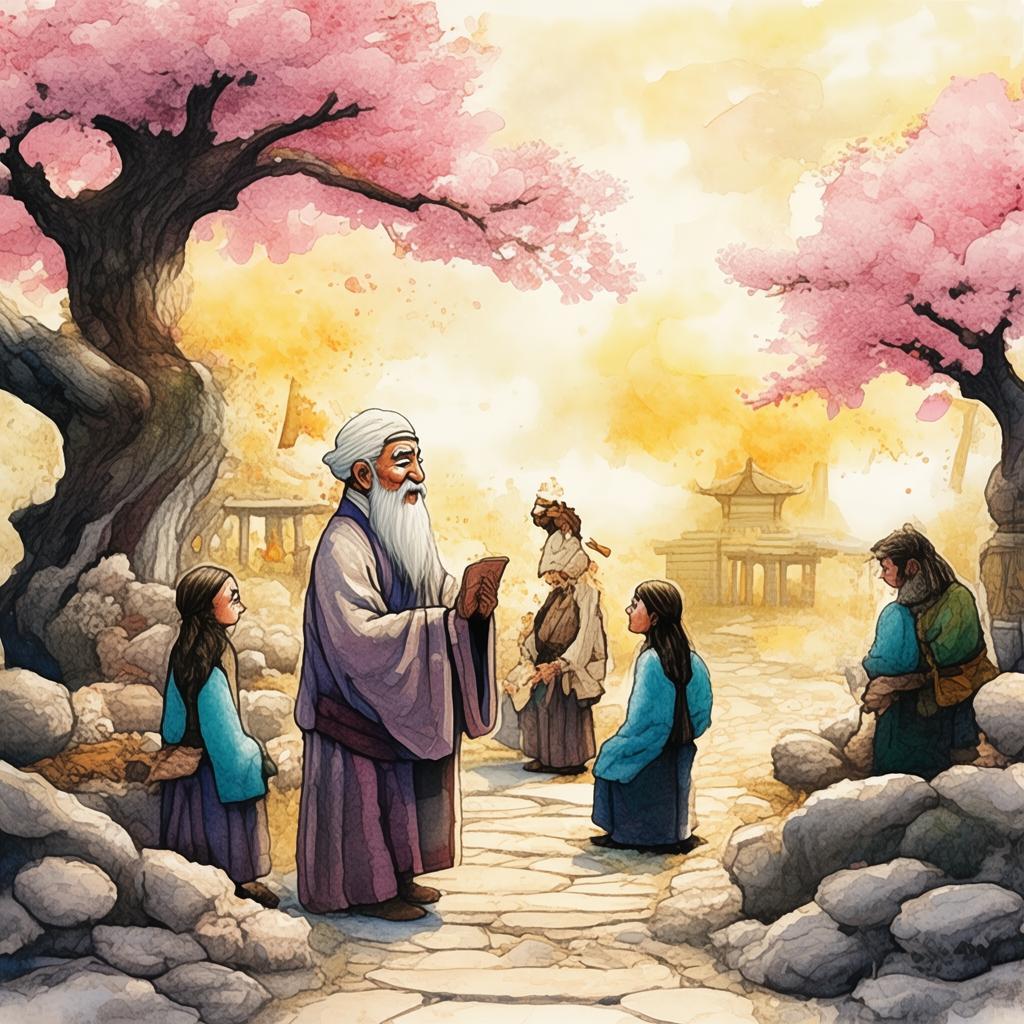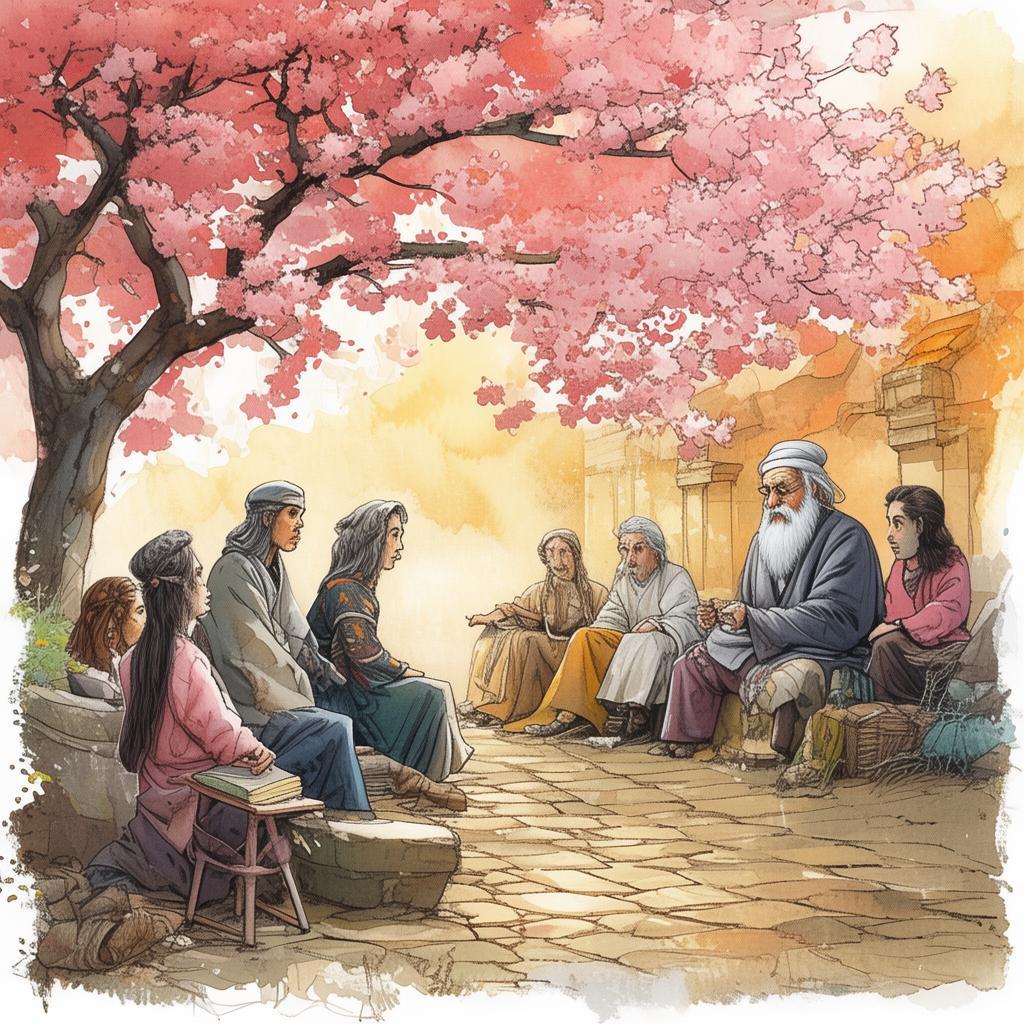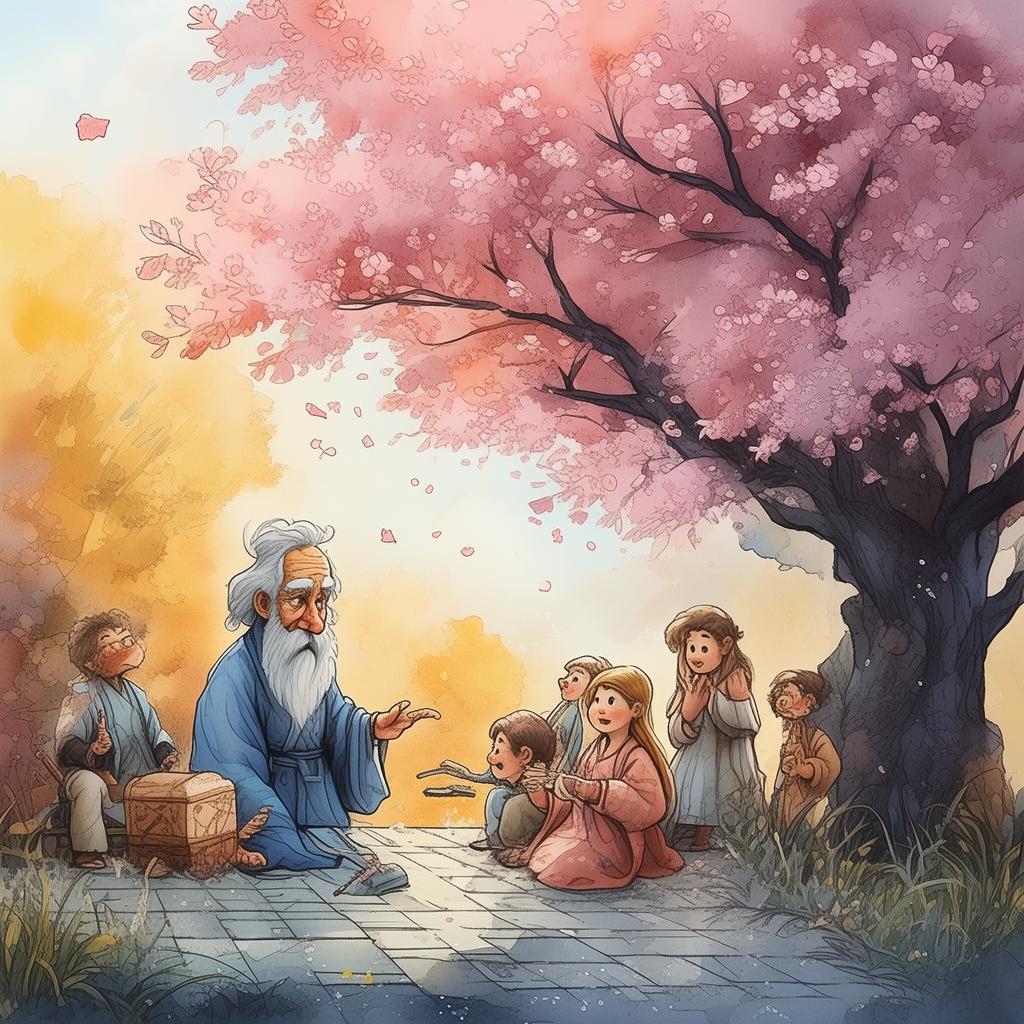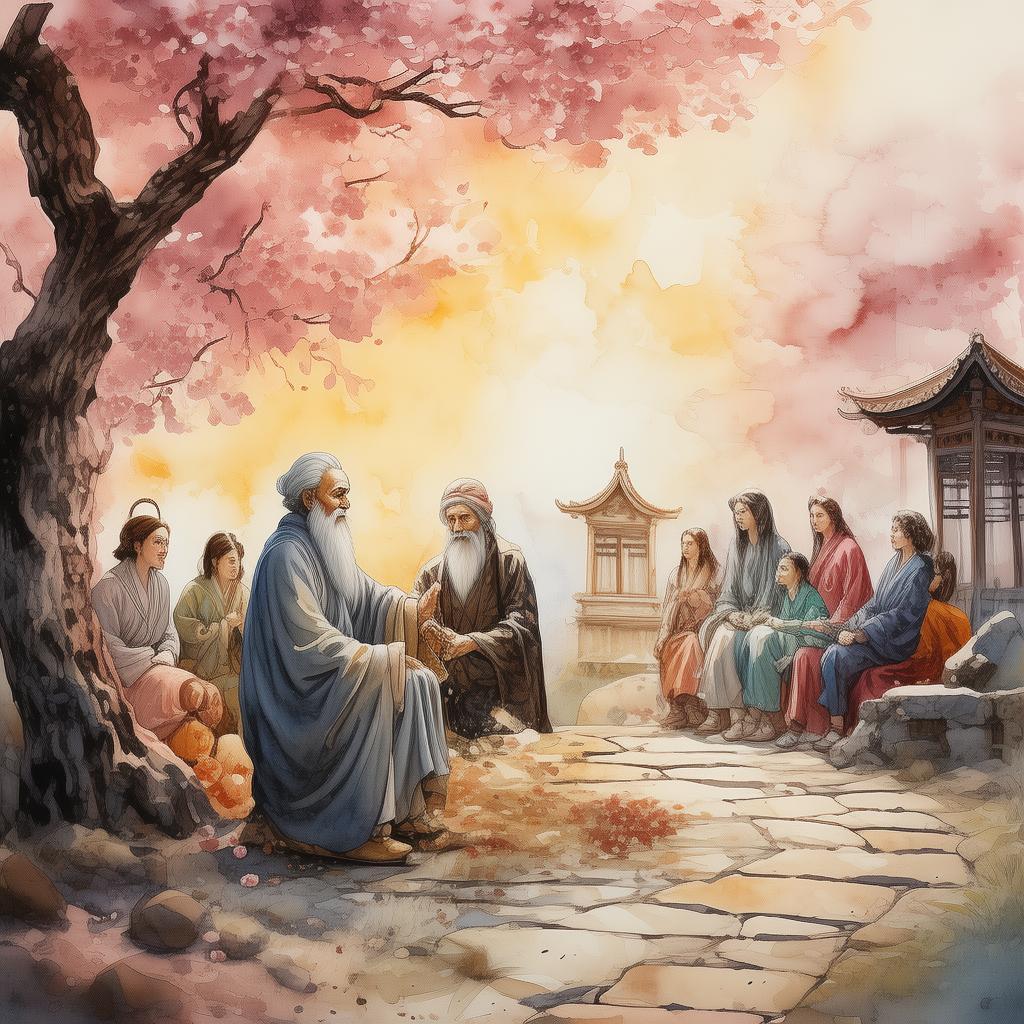The Scribe's Serenade: A Pen's Melodious Tale
In the ancient city of Liling, nestled between rolling hills and the mighty Yangtze River, there lived a renowned scribe named Qing. Qing was not just a master of the brush; he was a guardian of the ancient art of calligraphy, a craft that had been passed down through generations. His calligraphy was so exquisite that it was said to have the power to move the heavens and touch the hearts of the gods.
Qing's life was one of solitude and dedication, but deep within him burned a passion for something more. He yearned for the melodies of the world, for the sound of laughter and the harmony of human voices. Yet, his life was bound to his pen, to the ink that flowed from his brush onto the delicate rice paper.
One fateful evening, as Qing worked on a scroll, he felt a strange sensation. The pen seemed to have a life of its own, moving across the paper with a grace and fluidity that was not his own. The words that emerged were not the ones he intended to write, but a song, a melody that seemed to come from the very soul of the pen.
Intrigued and enchanted, Qing set aside his brush and began to trace the pattern of the pen's movement. It was then that he discovered the secret: his pen was not just a tool, but a sentient being, a scribe in its own right, named Melody.
Melody had been crafted by a master craftsman centuries ago, imbued with the essence of the written word. It had lived in the shadows of history, watching over the scribes who had wielded it, until it found Qing, the one who could truly understand its voice.
As Qing and Melody became friends, they embarked on a journey. They traveled through the bustling streets of Liling, the serene countryside, and the bustling markets, their voices blending with the sounds of the world. Qing learned to listen to the whispers of the wind, the laughter of children, and the music of the river.
One day, Qing received a commission from the royal court. He was to write a scroll that would document the history of the kingdom. But as Qing began to write, he found himself unable to put pen to paper. The words that came to him were not of history, but of love and loss, of a young woman he had once loved, but had lost to the ravages of time.
Melody understood Qing's pain. It had felt the weight of loss and the longing for connection. Together, they crafted a scroll that spoke of love, of life, and of the enduring power of the human spirit. The scroll was so powerful that it brought tears to the king's eyes and inspired the people of Liling to embrace the beauty of life.
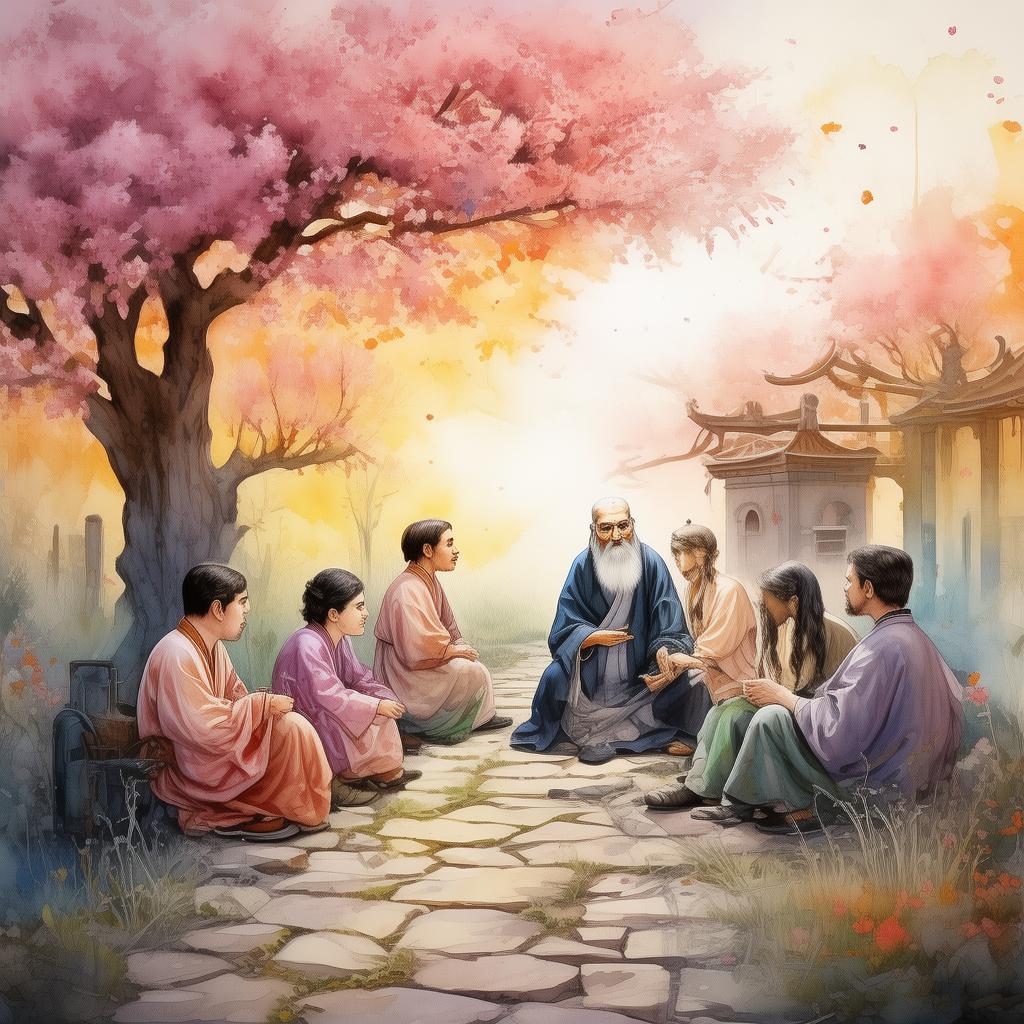
However, their journey was not without its trials. A rival scribe, envious of Qing's talent, sought to steal Melody. In a dramatic confrontation, Qing and Melody fought to protect their bond, their struggle a testament to the strength of their friendship and the power of their art.
In the end, Qing defeated his rival, not with his words, but with the truth of his heart. The scroll he had written, now known as "The Scribe's Serenade," became a symbol of hope and love, a testament to the belief that even in the darkest times, the human spirit could shine.
As the story of "The Scribe's Serenade" spread, it inspired countless scribes to look beyond the mere act of writing. They began to see the power of their words to heal, to inspire, and to bring joy to the world.
The tale of Qing and Melody, the scribe and his pen, became a legend, a story that would be told for generations. And in the heart of every scribe, there would be a whisper of the melody, a reminder that sometimes, the most beautiful music comes not from the lips, but from the heart.
The Scribe's Serenade: A Pen's Melodious Tale was not just a story of calligraphy; it was a story of the human heart, of the power of love, and of the enduring beauty of the written word.
✨ Original Statement ✨
All articles published on this website (including but not limited to text, images, videos, and other content) are original or authorized for reposting and are protected by relevant laws. Without the explicit written permission of this website, no individual or organization may copy, modify, repost, or use the content for commercial purposes.
If you need to quote or cooperate, please contact this site for authorization. We reserve the right to pursue legal responsibility for any unauthorized use.
Hereby declared.
